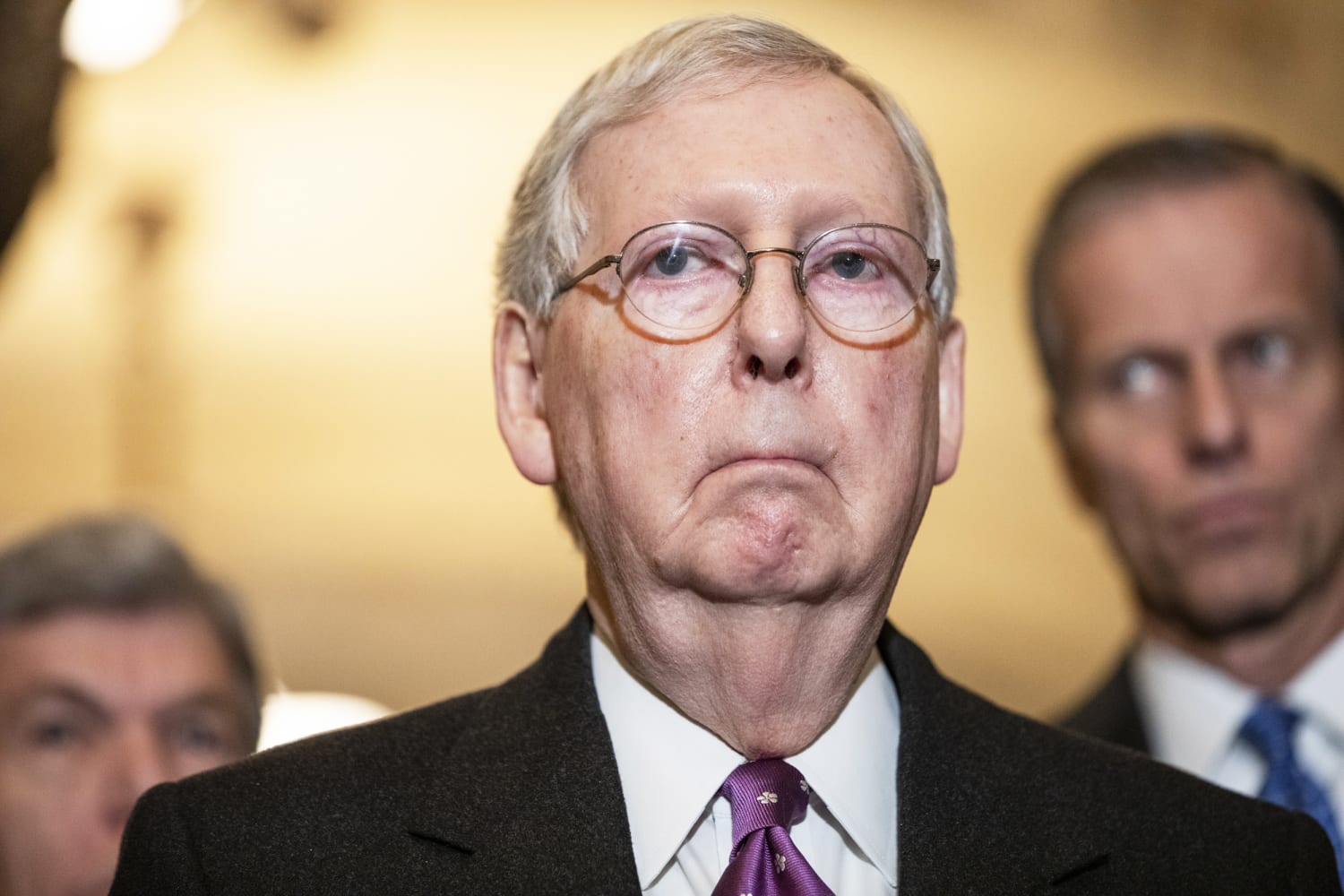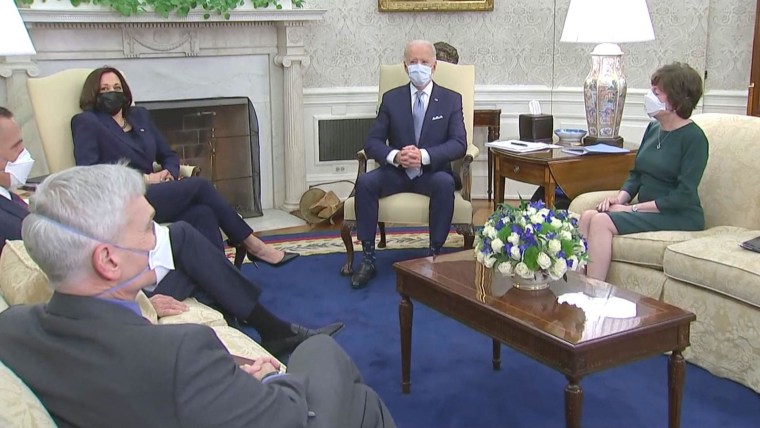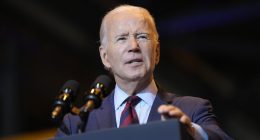It’s easy to see why President Joe Biden and congressional Democrats reacted with caution to a $618 billion Covid-19 aid proposal offered by some Senate Republicans this week, which was meant as a counteroffer to the $1.9 trillion coronavirus package the White House has put forward. Besides being one-third the size of what Democrats want — amid a global pandemic that has devastated the U.S. economy — the GOP proposal would ditch a series of key Democratic priorities like a proposed federal minimum wage hike.
GOP lawmakers are realizing that they can’t just be a party of no anymore but need tangible policy achievements so Biden doesn’t scoop up all the credit for bipartisanship.
Then there’s the matter of trust in Republican intentions, or lack thereof. Congressional Democrats look back a dozen years to the start of the Obama administration and conclude they fell for a political rope-a-dope routine, getting played by Republicans in negotiations over an economic stimulus package and health care reform. This time they’re determined not to avoid getting strung along by Republicans for weeks or months only to see GOP lawmakers reject their proposal anyway.
But the very fact that 20 percent of the Senate Republican conference is presenting a counteroffer and is willing to negotiate at all, rather than rejecting the Biden administration coronavirus aid plan outright and sitting on their hands, reflects an enormous shift in Washington’s political dynamics. Biden’s victory over Donald Trump, followed by Democrats winning their first Senate majority in more than six years through a pair of Georgia victories, means that Senate Minority Leader Mitch McConnell’s “just say no” approach is over.
During Barack Obama’s presidency, McConnell made clear from the outset that his goal was to deny the White House political wins. Working with the new president, McConnell warned, would only benefit Obama because voters would buy into his campaign rhetoric about being able to work across party lines.
This political dead-end mindset reached its logical conclusion when McConnell in October 2010 said that his main focus was on making Obama a one-term president by opposing everything put forward by the White House. Once McConnell became Senate majority leader in January 2015, he ratcheted up the opposition. The Kentucky Republican routinely blocked Democratic amendments from even being considered, and he kept Merrick Garland’s nomination to the Supreme Court from being voted on in 2016.
Now, though, 10 Republican senators are striking out on their own to negotiate with Biden. Their plan, like Biden’s, includes a new round of stimulus checks, albeit for $1,000 rather than the $1,400 the president prefers. The Republican plan also would extend the $300 in weekly unemployment benefits through June 30, while Biden’s proposal would up the amount to $400 and maintain the program through September.
Biden and the Republican senators met at the White House on Monday evening, a confab which, not surprisingly, was inconclusive. But it kept the conversation going. “It was a very good exchange of views. I wouldn’t say we came together on a package tonight. No one expected that in a two-hour meeting,” said Sen. Susan Collins, a Maine Republican, adding that both sides would “follow up” on issues raised.
While McConnell has been silent about the senators’ initiative, it’s doubtful they would have freelanced without at least tacit approval from him. Just a few months ago when McConnell had ironclad control over the Senate Republican conference, he would have put the kibosh on such a meeting. It’s also notable that the meeting included several down-the-line conservatives, like Mike Rounds of South Dakota and Todd Young of Indiana, as well as moderates like Collins.
Republicans face a political conundrum in being shut out of power in Washington for the first time in more than a decade. GOP lawmakers are realizing that they can’t just be a party of no anymore but need tangible policy achievements so Biden doesn’t scoop up all the credit for bipartisanship — or they at least need to look like they made a good faith effort to negotiate.
So Senate Republicans have a particular interest in making it look like they’re at least trying to play ball with Biden on Covid-19 aid, as the pandemic approaches its year mark in early March and significant portions of the country remain locked down.
That’s because they can read opinion polls like everyone else. A recent Monmouth University Poll showed Biden with a positive rating of 54 percent, about as good as a new president can get in these polarized times. Sixty-one percent said they feel optimistic about policies Biden will pursue, compared to only 35 percent who feel pessimistic. And a Yahoo News/YouGov poll finds Biden’s approach to battling the pandemic very popular, including 74 percent supporting $2,000 relief checks and 69 percent in favor of federal funding for vaccinations.
With Covid-19 getting worse, Republicans are feeling pressure to show they’re not just the party of no. On Monday, Gov. Jim Justice of West Virginia, a Republican, scoffed at the notion of a smaller coronavirus aid package. “If we actually throw away some money right now, so what?” Justice said. “We have really got to move, and get people taken care of.”
Biden himself still has incentive to show that he’s keeping an open mind about negotiating with Senate Republicans, after a victorious campaign in which bipartisanship played a huge part. The 36-year Delaware senator and two-term vice president repeatedly promoted his ability to foster across-the-aisle compromises.
However, the president is also making it clear that he’s willing to act unilaterally. White House press secretary Jen Psaki stressed in a statement after Monday’s meeting that Biden doesn’t plan to change the relief package substantively. “He will not slow down work on this urgent crisis response, and will not settle for a package that fails to meet the moment,” Psaki said.
The White House is following up such rhetoric with action. On Monday, before the meeting, House and Senate Democrats took the first procedural steps toward enacting Biden’s full $1.9 trillion Covid-19 aid plan. The Democrats’ decision to go it alone not only reflects stark policy differences with Senate Republicans; they’re also skeptical of GOP intentions. The party’s frustrations over failed negotiations on the stimulus after the 2008 economic crash still loom large in the Democratic memory.
While McConnell has been silent about the senators’ initiative, it’s doubtful they would have freelanced without at least tacit approval from him.
Obama recalls in his recent memoir wasting eight months trying to negotiate, futilely, with Sen. Chuck Grassley, the Iowa Republican, on health care, who when pressed on his stance in a White House meeting admitted there were no concessions he could be offered that would win his support.
But whether any Senate Republicans actually support Biden’s Covid-19 aid plan is almost beside the point. Both sides have reasons for the talks to continue for now. That GOP lawmakers are even trying to negotiate with a Democratic president is a significant — and welcome — change from the recent political past. And a sign that political momentum is on the president’s side, not theirs.
Source: | This article originally belongs to Nbcnews.com











